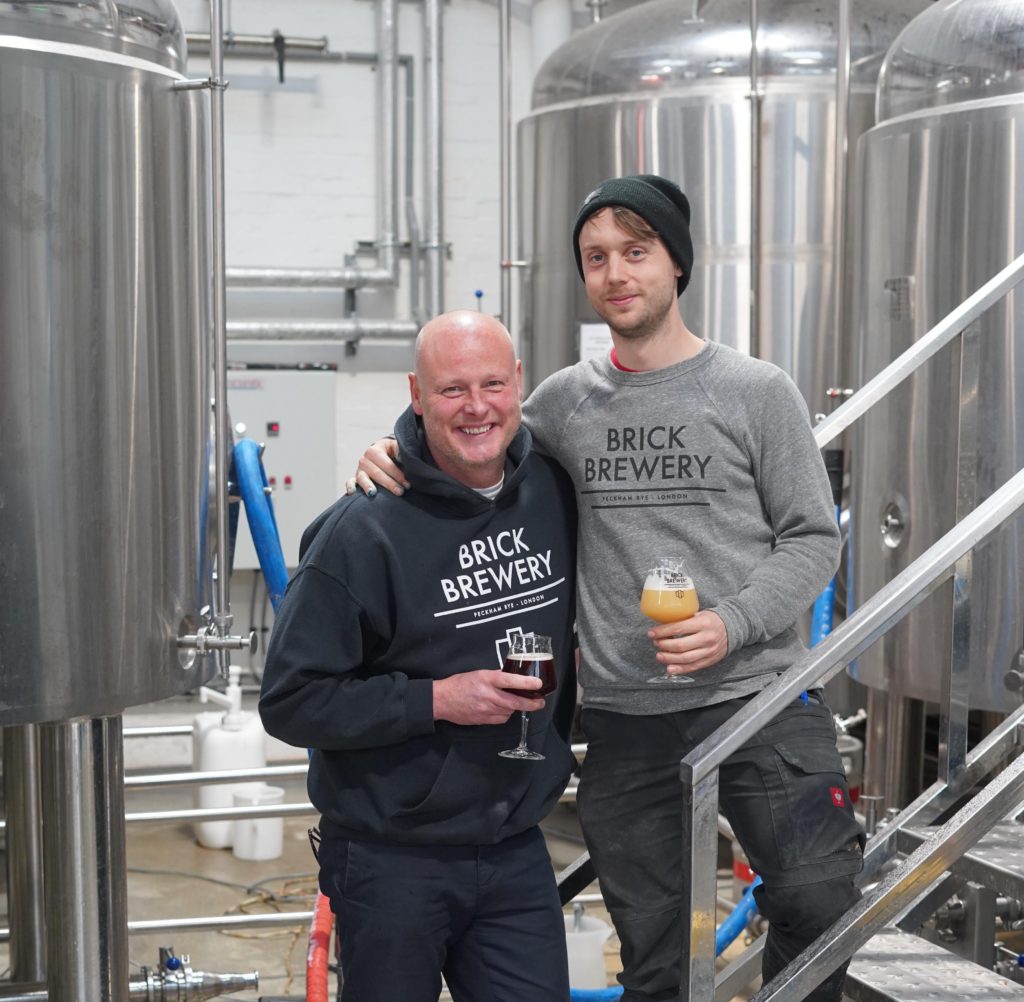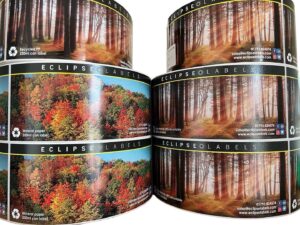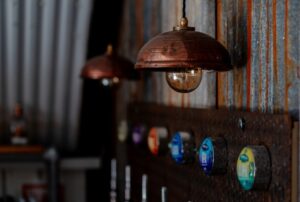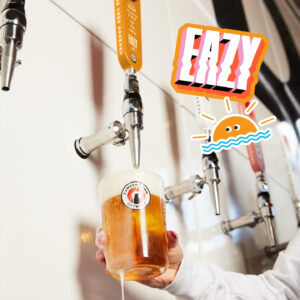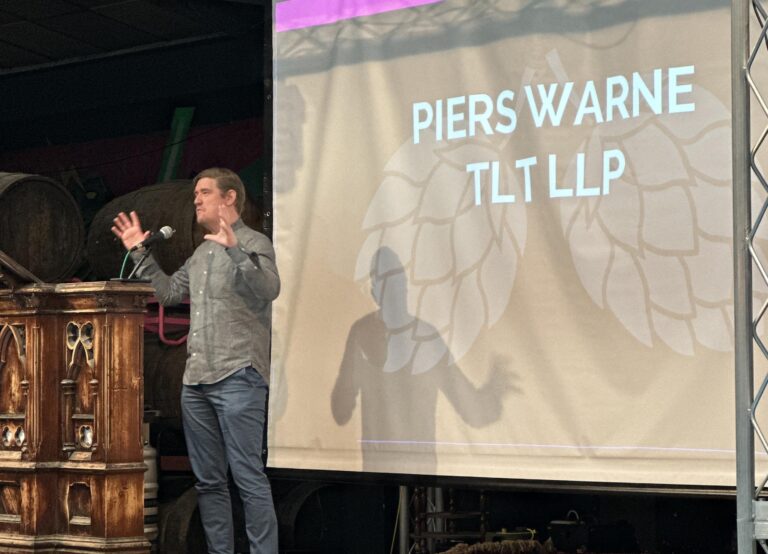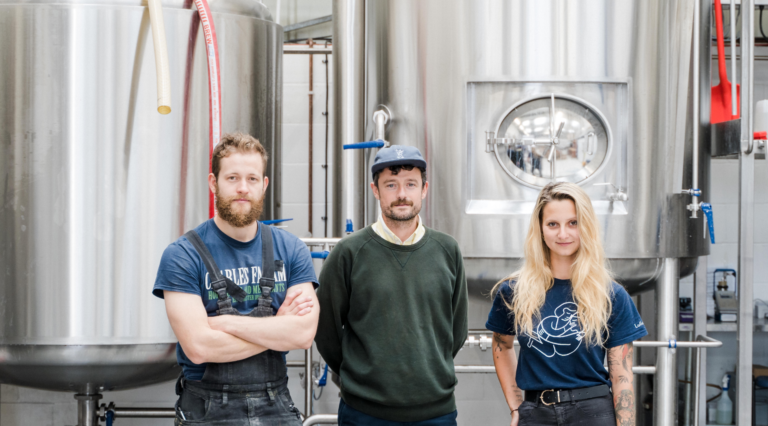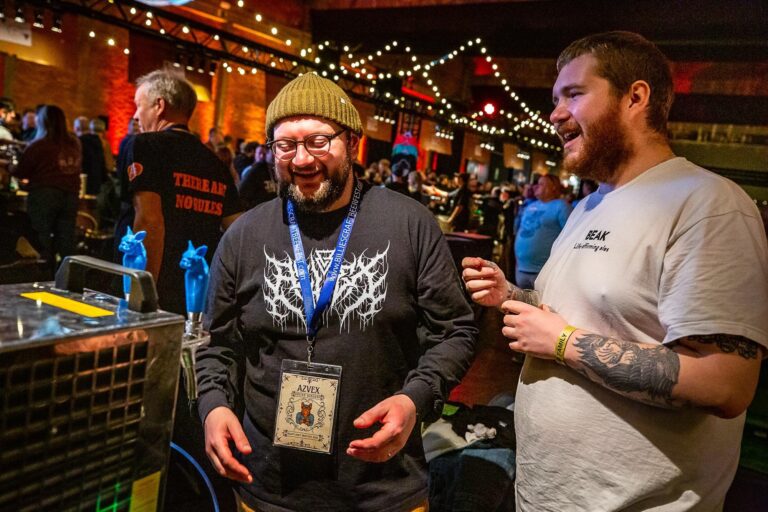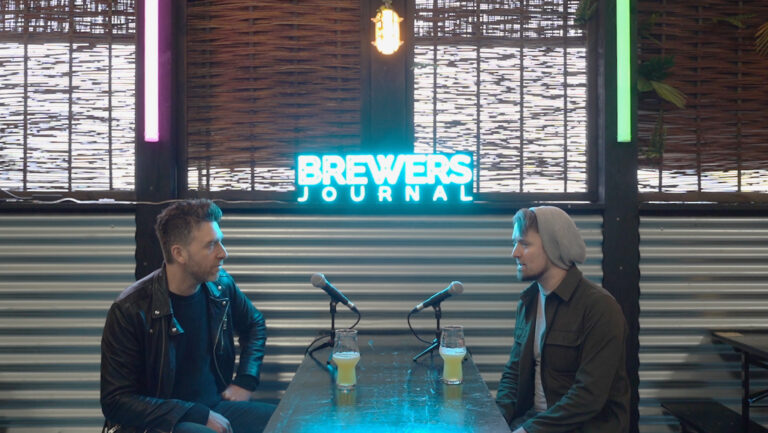What do you get if you mix a former marketing consultant that has run his own Mexican food business, a head brewer that has worked in Greenland, Zagreb and many places in-between, with a vibrant, driven and growing team? Brick Brewery, of course. And in its sixth year, the London business is ready to build on its successes and establish itself further still.
Sierra Nevada Pale Ale.
Ian Stewart, a York native who spent many of his formative adult years studying and working in the US, had his first taste of the seminal beer at one of Athens, Georgia’s meccas for all things alcohol. 500 beers were on offer. For someone new to the scene, it was overwhelming.
He wasn’t bowled over by the beer, either. Nothing against it, of course, it just wasn’t for him.
“I found it somewhat peachy. It was at odds to what I was used to,” he recalls. “For someone like me, so used to John Smith’s, I didn’t get on with it at all!”
And unlike so many others, Stewart never really experienced his beer epiphany in the US. Despite spending more than a decade there, his lightbulb moment in the world of excellent, modern beer came much close to home.
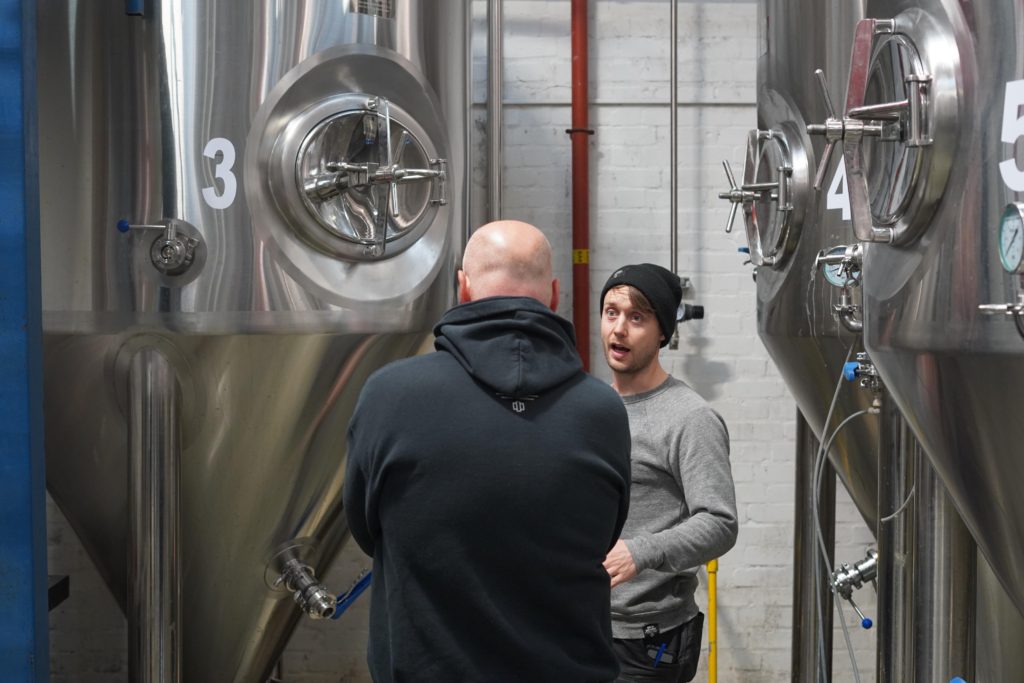
The turning point for Stewart came in London many years later.
“I opened this bottle and the aroma just smacked me in the face. I had to ask myself how the brewer achieved it. In my eyes, magic,” he says.
Yes, you’ve guessed it. He’s talking about Evin O’Riordan and lauded London outfit, The Kernel.
There are few individuals that have lit the fire under so many would-be brewers as O’Riordan, and eagle-eyed readers will recall that last issue’s cover stars Eight Arch Brewing Co were equally full of praise for the maestro hailing from Wicklow, Ireland.
Stewart is one such fully paid-up member of the fan club and those Kernel beers were an inspiration to him in the first months and years of Brick. And he’d need that inspiration to drive him on, especially in the long, tiring slog those formative weeks and months proved to be.
Brick Brewery was something of a moonlighting project for Stewart early on. He made the bold move to secure a unit under a railway arch in Peckham, directly under the platform at Peckham Rye. All the while doing his day job working as a marketing profiler for a major US-based firm.
“I’d spend my evenings at the brewery then I’d be going into work the next day and fall asleep in the toilets!” he laughs.
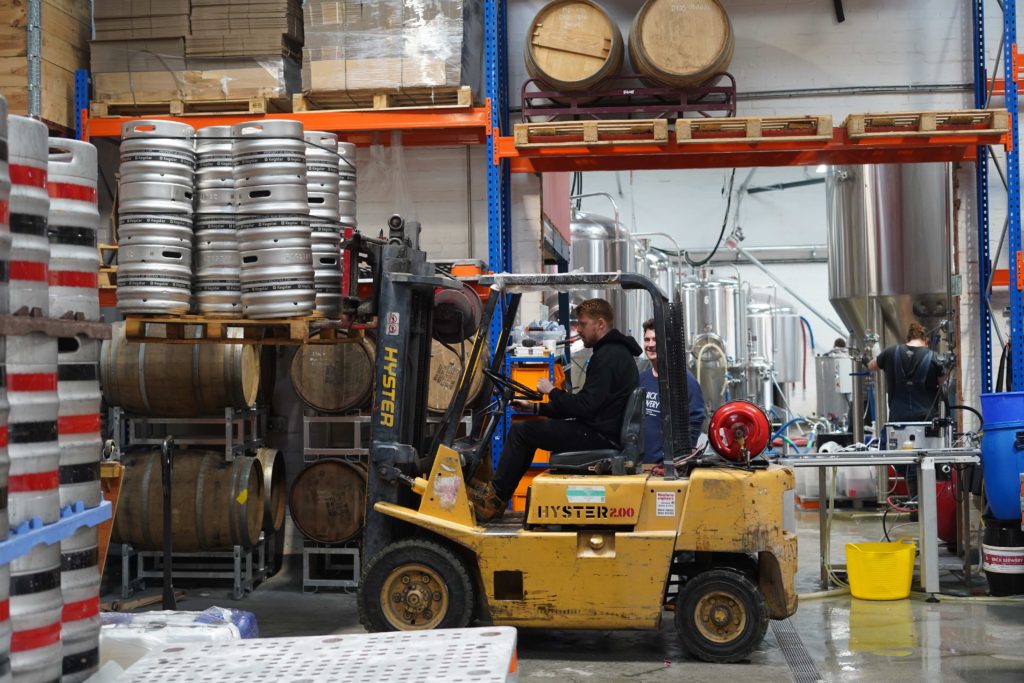
Those long days did little to put him off the idea of making brewing a career, though. Sure, handling the production of beer along with the deliveries and all that come with it, was far from easy. And it’s no doubt a familiar tale for many, but he knew it had to be done.
Thankfully, what would normally be a time of stress in the workplace, worked in favour for Stewart. He was greeted with the news that his employer was cutting a quarter of its workforce.
“By then I had decided that I needed to leave that role and pursue Brick Brewery full time. I set myself a deadline that by the end of April 2014, I would be leaving one way or another,” he recalls.
And on the 28th April, the memo came through. His name was on the list of suggested volunteers and the rest was history.
“I left with a healthy sum but at the same time, my wife Sally and I had twins,” Stewart smiles. “It brought balance to my life. It put things into focus knowing that I had to work hard and avoid procrastination. I knew that I had to be efficient to ensure we had a positive work/life balance.”
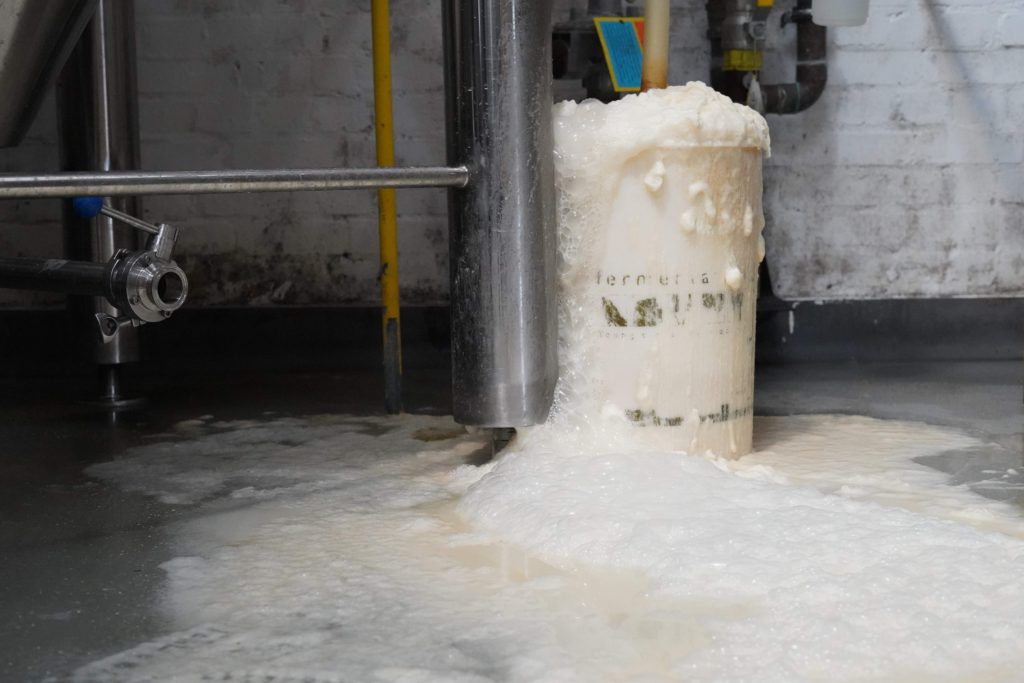
Stewart started out on a five barrel kit producing beers such as Challenger and the popular Sir Thomas Gardyner, a brew that would see sales double overnight when it was renamed Peckham Pale. The provenance was a hit. People bought into the name and stayed for the excellent beer.
“We chose the name of Brick Brewery because we didn’t want to ever be tied to a specific area. But the beer branding allowed us to tie our produce to a sense of place. Sally and I had a five year plan of where we’d live and here we are, ten years on,” he says.
Before founding Brick, and before sampling the wares of Kernel, Stewart had already experienced another moment that pointed him down the route of beer.
“I used to run a Mexican food business. I had a beautiful Airstream Silver Bullet, which I traded from in places such as Brick Lane and at private events,” he recalls.
On one occasion he was hired by a group of American expats to provide the food for a function outside the embassy.
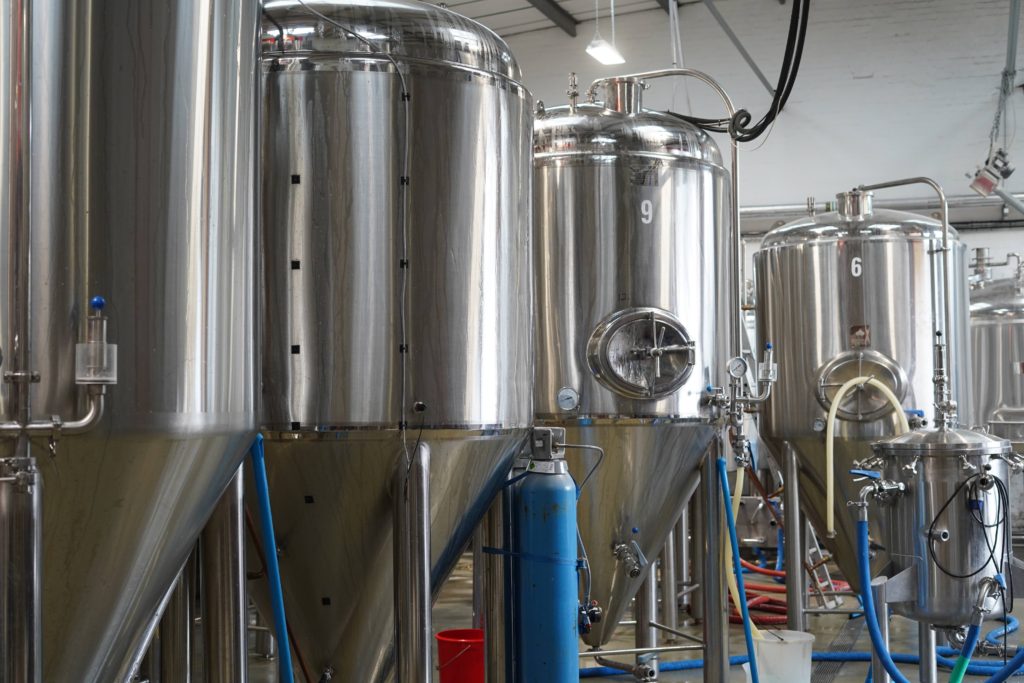
Stewart had a job lot of Corona so naturally asked if he could bring them for sale, too. It was no problem and he enlisted a friend to help him out on the day.
“It was great, it was busy. But here I was, sweating my guts out to make all of these dishes and there was my friend, popping open bottles, adding some lime and off he went. The beer queue was twice as long, and we made much, much more from the beers! I knew there was an opportunity for me.”
And that eye for opportunity has helped Stewart grow his business and build the brewery brick by….
From the off, not content with brewing, cleaning, deliveries, admin and maintenance, Stewart knew he wanted a taproom offering. The UK has been somewhat slow on the uptake of taprooms, despite all of their benefits. And of course, this has not been for the want of desiring one either. Space, especially in the bigger cities has proved a major hurdle for many, but where’s there’s a will, there’s often a way.
The taproom proposition catalysed a strong early connection between Brick Brewery and the local community.
“I knew we needed one. It provides 20% of our revenues and it’s a weekly cash injection that you can rely on. We are lucky that the local area reacted well to us and its fascinating to witness the way the clientele has changed over the years,” he explains. “Early on it was primarily male orientated beer enthusiasts, perhaps matched more with the type of beers we were producing. In 2019, we serve people young and old, men and women, drinkers of all kinds.”
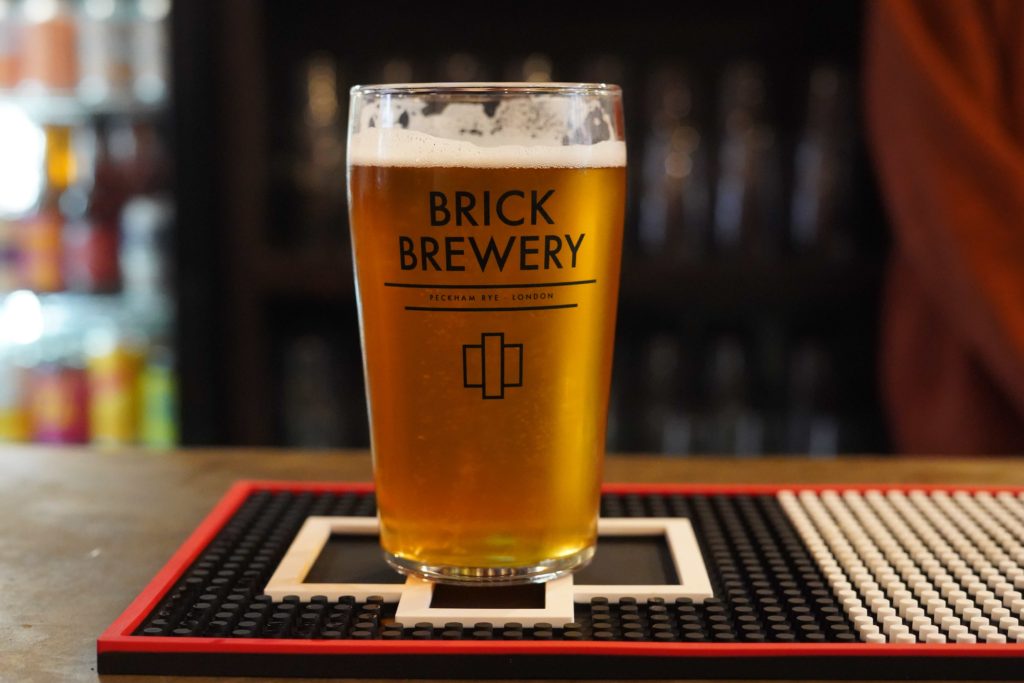
The taproom is a far larger entity now, too, offering 23 taps with anything from 12 to 16 taps filled in-house. It takes up the whole railway arch that previously housed the brewery until the business moved to a far larger facility in Deptford. During a recent visit, it had a healthy buzz 20 minutes after its 5pm opening on a drab evening midweek.
Brick pour an impressive array of beers from these taps. A reliable core, known as its Foundation Range, are complemented by seasonal and limited releases. Many of these beers are the brainchild of head brewer Pete Vick, who is having his second stint of sorts with the brewery, but he’s hardly been twiddling his thumbs in the interim.
Vick made his foray into brewing back in 2013 but he had been making wine and cider in the years prior. Growing up in Devon, he was surrounded by wines his mum had made and then proceeded to squirrel away in various cupboards. Sure, these tasted more like sherry by the time Vick imbibed them years later, but it gave him an early interest on the production of alcohol regardless. Just don’t ask about the Hawthorn Vodka experiment in his parent’s caravan…
Studies in Political Philosophy and a move to London followed and Vick would find himself scrumping people’s gardens for urban fruit. His Devon background had imbued in him a passion for cider but a visit to the Dean Swift pub in Butler’s Wharf, SE1 would put him on a different path.
“I was looking for jobs in the service industry so I left my CV in,” he recalls. “The manager was intrigued by the fact I listed ‘Cidermaking’ under my hobbies.”
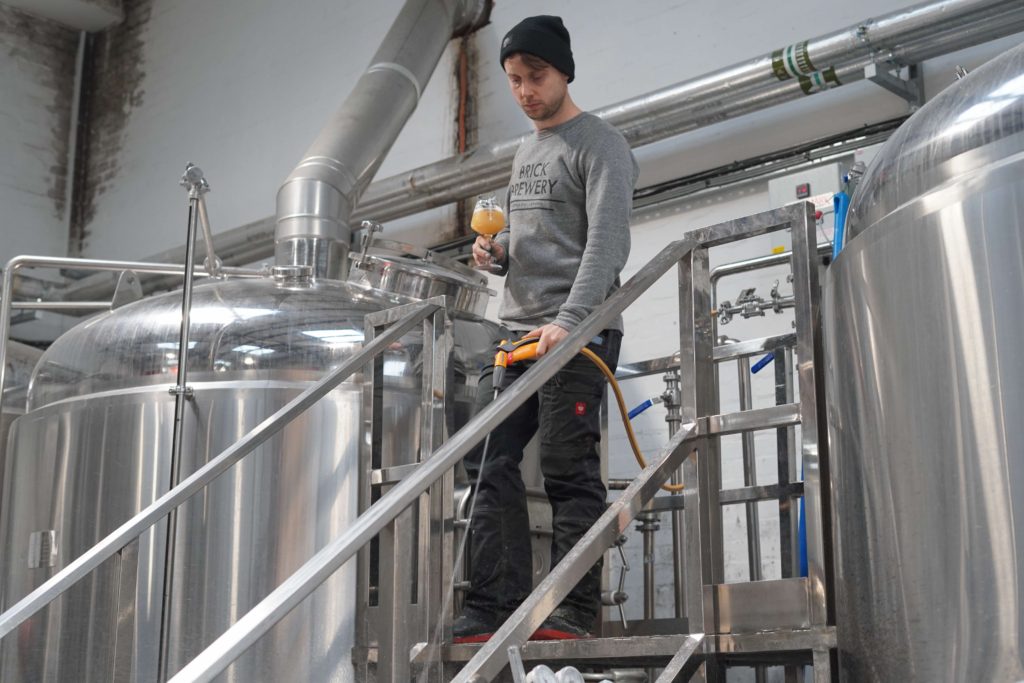
He opened bottle of Boon Kriek from Belgium’s Brouwerij Boon and Vick was taken by it.
“The acidity really spoke to be, it showed me that beer could be something different than the £1 a pint Fosters my friends used to drink growing up,” he says.
Such a revelation didn’t grab Vick hook, line and sinker, though. The amount of similar beers were harder to come by compared to now but the would-be head brewer found his attentions sought by another great example of brewing. Fresh, hoppy, balanced beer made by a brewer less than a mile down the road.
Yes, you’ve guessed it. He’s talking about Evin O’Riordan and lauded London outfit, The Kernel.
Vick’s foray into professional brewing would be at Belleville Brewing in Wandsworth, charged with running the outfit’s 5 barrel kit early on into his stint.
“I don’t think that would happen so easily anymore, to be honest. It was a privilege to get to grips with it and I learned a lot,” he explains.
Vick would then go on to work, in a freelance fashion, at breweries such as Brockley, Hackney and Brick, primarily in wort production. He and Stewart would form a good relationship but a desire to travel led him to advertise his services online through SIBA:
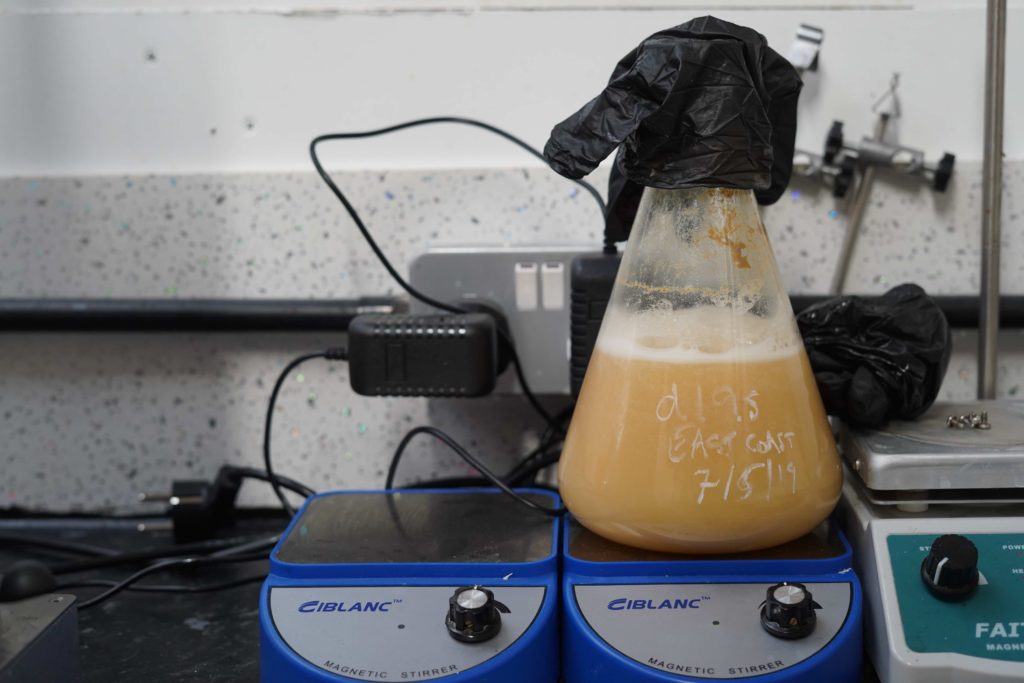
Moderately qualified brewer seeks placement with international brewery.
“I made up some sort of route with the replies I received,” he remembers. “They ranged from a new start-up in Ireland to a proposition from a gentleman called Frederick who simply asked: ‘Greenland 🙂 😉 ?’
He dwelled on it, asked what his older self would think of him turning down the opportunity, and off he went.
“Frederick was set on turning this old abandoned brewery back into something great. But it was next to a fish processing plant. I’ve worked in some smelly breweries but this was something else,” says Vick.
His next stop was Beer Cat, a 10 barrel brewery based in Vilafranca del Penedès just outside Barcelona. A project consulted by James Campbell, former head brewer at Marble and Cloudwater and now of SSV Limited, Vick enjoyed working with local produce such as freshly picked oranges.
With Greenland and Catalonia under his belt, the final date on his brewing tour would prove to be the Garden Brewery of Zagreb, Croatia.
“I had the chance to work there for four months, so of course I was going to take it. The brewery initially started out to serve music festivals around the country. But things went well and four months became eight months, then a year, and then two,” he laughs.
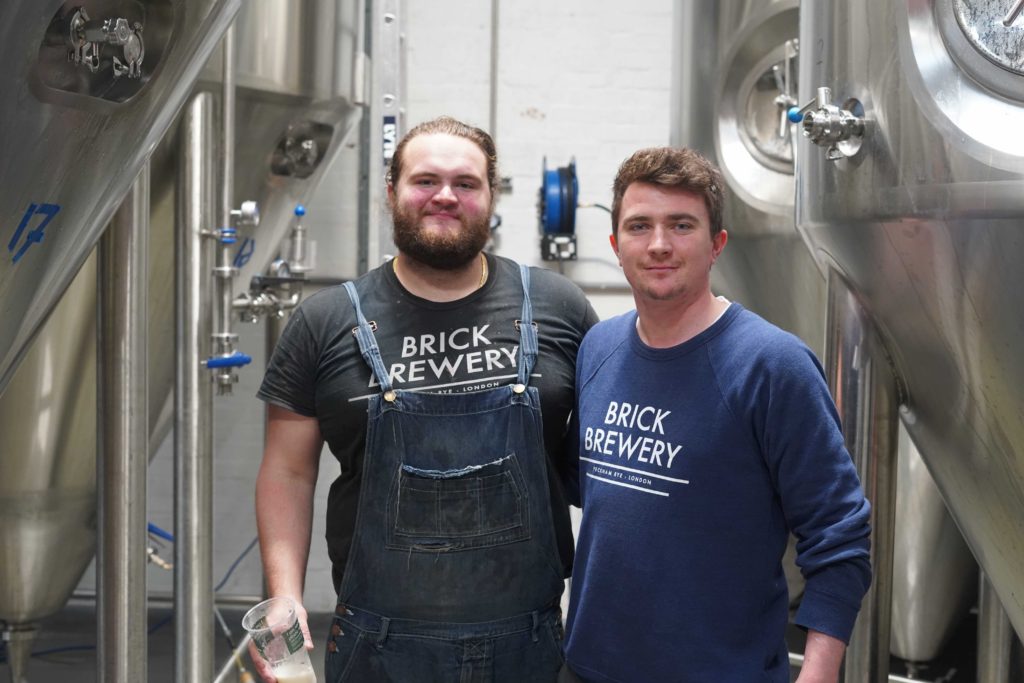
Vick adds: “I learned a great deal and Zagreb is a lovely city, but it is quite, small, too. I found myself missing the beer scene back at home, the social aspect of idea sharing and the community and camaraderie that came with it.”
It’s a good thing then that Brick Brewery’s Ian and wife Sally, who in 2019 is the brewery’s brand director armed with a wealth of experience in brand design, paid Pete a visit for a festival they were taking part in.
“I suppose you could say we answered his lonely heart’s advert,” smiles Stewart. “It became clear Pete was ready to return to London and we had big plans for Brick so it worked out well for both parties.”
And the Brick Brewery of 2019 is a different animal to the one Vick joined several years back. A brewery that started with a 32HL capacity now can produce up to 220HL per week. Its portfolio is more diverse than before, the beer better than ever and it continues to make inroads into an increasing number of markets.
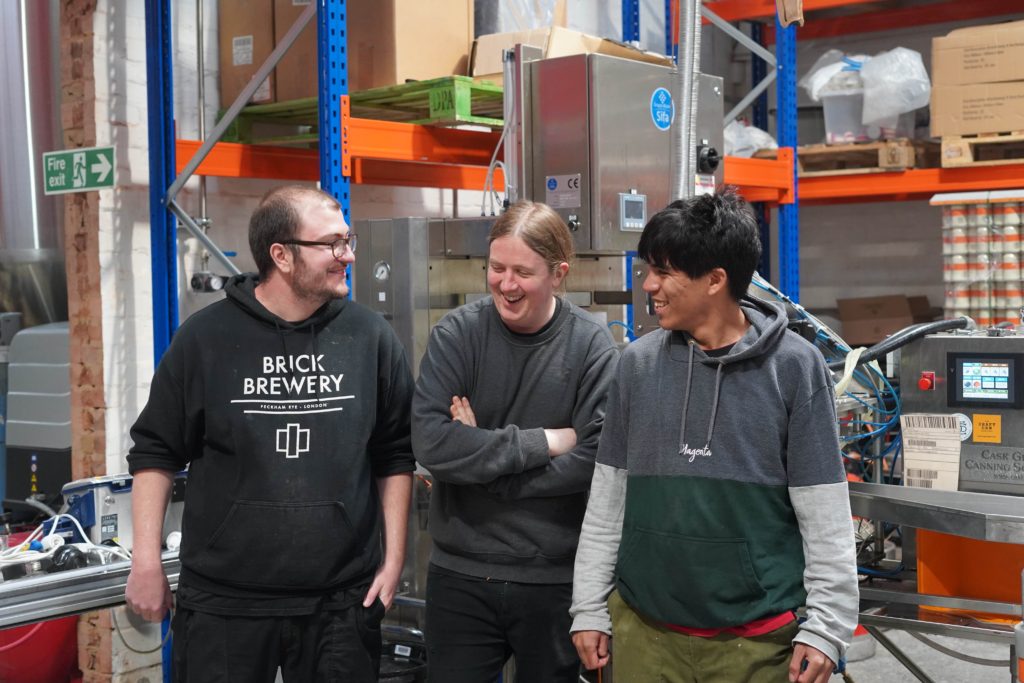
Peckham Pils, Pale, IPA and Rye have been complemented with the addition of a Helles and a Session IPA. The latter is the brewery’s first experiment into “murk” that they’re happy with. And it was tasting excellent on this visit, too.
2018 bore witness to the launch of a sour beer programme, regular releases such as Raspberry & Thyme, Strawberry & Cucumber and Winterberry Sour have all resonated with drinkers. This has led Brick to produce a ‘Heritage’ line of beers that launched with Manhattan Sour and Martini Sour, and will continue with a kettle soured Brut that has been fermented with Champagne and Wit yeast, aged on cedar wood, nettles and gorse flowers.
Stewart, Vick and the team are rightfully proud that their beers are constantly improving in quality and diversity.
“The landscape was a lot more forgiving early on,” recalls Stewart. “Breweries, as they should be, are being run as businesses. You’re delivering a product that people pay good money for, and the industry is more mature than it was say a decade ago, so it’s only right that customers get what they pay for.”
Stewart adds: “That’s why we’re probably seeing an increasing number of people dip their toes in the water with cuckoo brewing, hoping to nail a recipe before releasing it. There’s no point coming to market with a substandard product. There’s so much choice out there, the consumer doesn’t need to have patience with you if you let them down even once.
“That said, I’m not sure why you would open a brewery now. I suppose a lot of people still see it as a sexy profession but they don’t see that hard work behind it. Of course, it’s a great job but it’s more challenging than ever.”
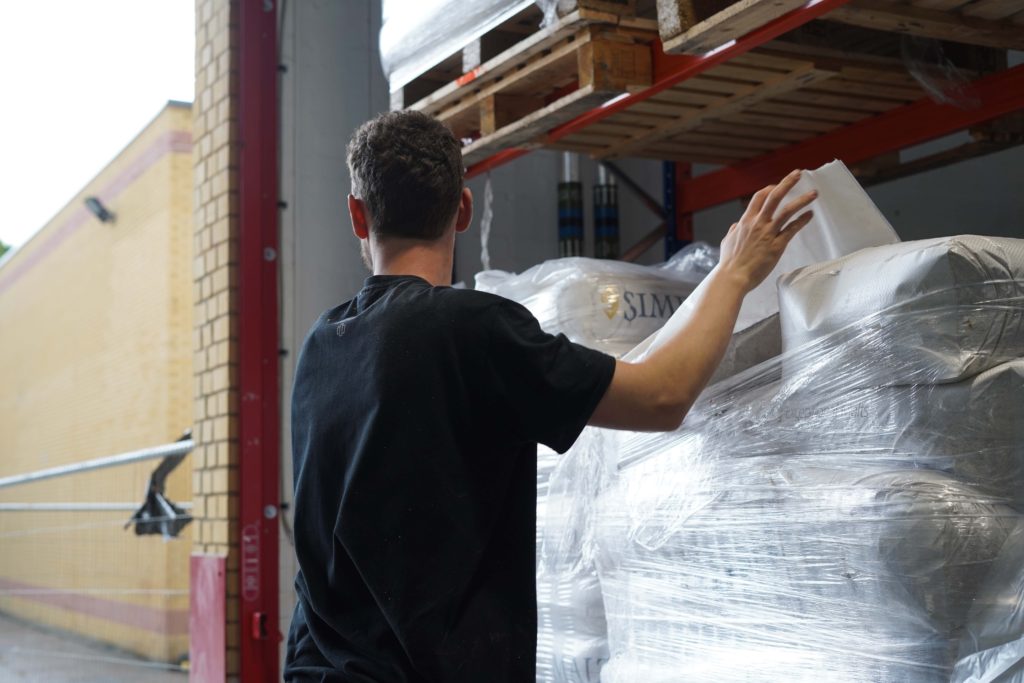
For Stewart, a key part of business life he has not taken his eye off is cashflow. He’s acutely aware that as the business grows, invests in more equipment and provides employment to a growing pool of staff, such a focus is imperative.
The addition of Oscar Floris in credit control has enabled the brewery to place a tighter emphasis on invoices. During what has been something of a tumultuous recent period in business closures, Stewart is anxious about the current business landscape.
“The UK beer scene is changing. In recent weeks we’ve seen some pretty huge announcements and all seem to be related to Crowdfunding. Crowdfunding sites clearly state any investment is at risk which I’m sure mitigates any responsibility on their part should the business miss-manage the funds and, as we’ve seen this week, money raised for one thing is spent in other areas,” says Stewart. “My prediction is we’ll see more and more beer related businesses having used equity crowdfunding, fall short and close their doors leaving investors scratching their heads and wondering where their hard-earned money has gone for that portion of an over-inflated, over-valued business.”
He adds: “Back in 2018 we did crowdfund to upgrade our community lead tap room and make it a better and more accessible space for everyone. But in doing so, we chose the rewards route rather than equity, because we wanted people to feel a part of a specific project that was going to take place at a specific time and get their returns immediately and to be honest, without risk.
“The rewards were of all different scales and sizes such as doubling donations in beer tabs, purchasing merchandise and experiences, all of which have been enjoyed by numerous people not just locally but across the country too. It gave us an opportunity to engage more directly with people who have supported us since the beginning and give them on some occasions, something unique for them to enjoy as a big thank you.
“We pride ourselves in our independence. We’ve grown steadily and carefully, budgeting, buying new equipment when needed, not when it would be nice to have.
“We remain a family business and intend on keeping it that way by reinvesting back into it. The temptation is strong to have the newest, biggest, fastest brewery and in some ways running a crowdfunding campaign would be an easy path to get there but we’re not about easy. We are dedicated to our craft and dedicated to the business. We won’t cut corners or compromise.”

